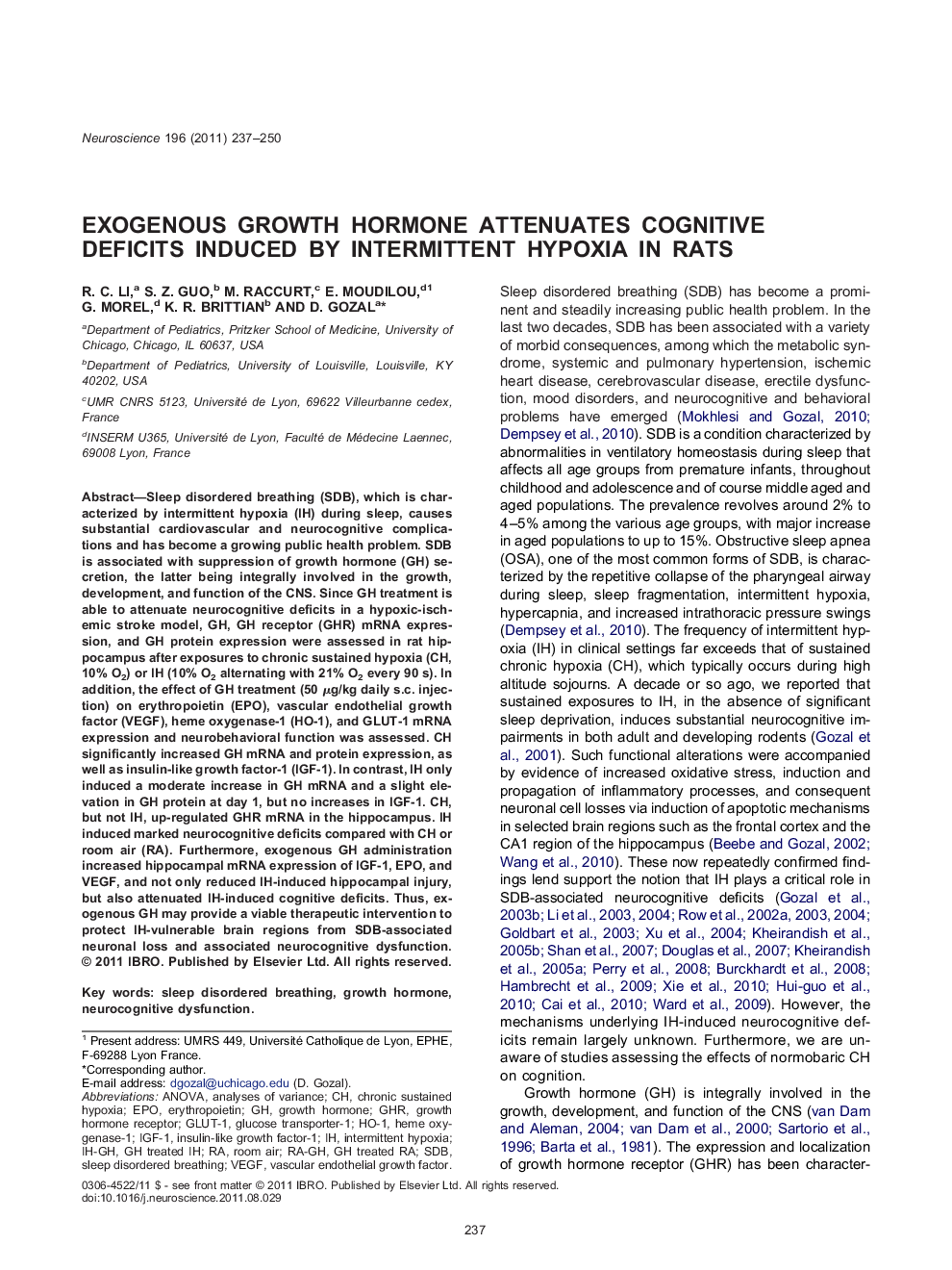| Article ID | Journal | Published Year | Pages | File Type |
|---|---|---|---|---|
| 6276242 | Neuroscience | 2011 | 14 Pages |
Sleep disordered breathing (SDB), which is characterized by intermittent hypoxia (IH) during sleep, causes substantial cardiovascular and neurocognitive complications and has become a growing public health problem. SDB is associated with suppression of growth hormone (GH) secretion, the latter being integrally involved in the growth, development, and function of the CNS. Since GH treatment is able to attenuate neurocognitive deficits in a hypoxic-ischemic stroke model, GH, GH receptor (GHR) mRNA expression, and GH protein expression were assessed in rat hippocampus after exposures to chronic sustained hypoxia (CH, 10% O2) or IH (10% O2 alternating with 21% O2 every 90 s). In addition, the effect of GH treatment (50 μg/kg daily s.c. injection) on erythropoietin (EPO), vascular endothelial growth factor (VEGF), heme oxygenase-1 (HO-1), and GLUT-1 mRNA expression and neurobehavioral function was assessed. CH significantly increased GH mRNA and protein expression, as well as insulin-like growth factor-1 (IGF-1). In contrast, IH only induced a moderate increase in GH mRNA and a slight elevation in GH protein at day 1, but no increases in IGF-1. CH, but not IH, up-regulated GHR mRNA in the hippocampus. IH induced marked neurocognitive deficits compared with CH or room air (RA). Furthermore, exogenous GH administration increased hippocampal mRNA expression of IGF-1, EPO, and VEGF, and not only reduced IH-induced hippocampal injury, but also attenuated IH-induced cognitive deficits. Thus, exogenous GH may provide a viable therapeutic intervention to protect IH-vulnerable brain regions from SDB-associated neuronal loss and associated neurocognitive dysfunction.
â¶Intermittent hypoxia that characterizes sleep-disordered breathing leads to neurocognitive deficits. â¶Dysregulation of recruitment of GH and associated downstream protective pathways occurs after intermittent hypoxia, but not sustained hypoxia. â¶Divergent GH pathways underlies components of hippocampal vulnerability and ultimately injury and dysfunction following exposures to the episodic hypoxia. â¶Exogenous GH therapy promotes enhanced expression of protective genes, thereby reducing IH-induced neuronal apoptosis in hippocampus and functional deficits. â¶GH-based interventions may provide the basis for potential clinical therapeutic interventions aimed at palliating SDB-associated end-organ morbidity.
